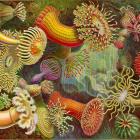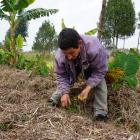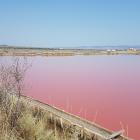About the Exhibition
About the Exhibition
In this exhibition, ENHANCE ITN doctoral researchers showcase short virtual reality video installations that emerged out of their own empirical and ethnographic fieldwork. The videos work by tracking, rendering, and displaying full-field visual, sonic, and tactile data in a context in which the viewer has full control and is empowered to decide what to look at, listen to, and feel—or which story to experience.











